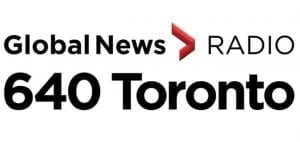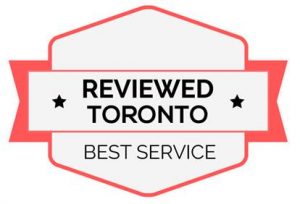Financial independence is the dream for most Canadians. Many people start to save, but then the pressure of running the household and other commitments gets in the way, and they end up spending their money and can never seem to get the financial footing they seek.
To achieve financial independence, you have to plan your financial course with care. It is not an easy task since there are no one-size-fits-all formulas that you can follow because the variables keep changing. However, there are actionable steps you can take.

First, get clarity on your spending patterns and habits. Do this by keeping a list. For example, how much do you spend within a period such as a week or a month? Often tracking smaller periods is easier to do. For example, if you tracked four weeks, you have a month of data to reflect on and analyze This tracking method will help you identify poor spending habits and avoid them. As a result, you will be more intentional when spending your money.
Second, focus on cash flow and spend less than you make. You might think you are doing pretty well financially because you are sticking to a budget, but are you making the most of your money? If you want to be financially intelligent, you need to realize your financial situation and understand how much money you spend each month to make smarter financial decisions. When you fail to do this, you are not only limiting your financial future, but you may be squandering cash flow that steals opportunity from your family's future. It's simple, the less money you have to put away, the less compounding potential you have and the harder it becomes to attain your goals.
Third, spend time getting educated on financial matters. Achieving financial independence is not as easy as it sounds. It takes effort, time, patience, discipline, and education. You can't just sit back and expect financial independence to happen. That's why financial education is the key. There are many great books out there for people who want to learn about personal finances. Ask your advisor to make some recommendations in this area. In addition, many advisors have access to private client-only areas where they house educational videos and material you can use to learn at your own pace.
Fourth, get a good coach. Financial coaches provide accountability and a new perspective on your finances. We go about our day not considering the future and how our financial choices affect it most of the time. Coaches make you think about this because financial planning is not only about the numbers. It has a lot to do with the phycology of how we think about money. With the help of your coach, you will come up with a financial plan that will enable you to feel more secure and accomplished. A coach plays a pivotal role in the financial independence journey by helping you reach your goals and keep you on track.
Moreover, if you book time regularly to check in with your advisor (your coach), you can use them as an accountability partner to increase your success rate. The more you know about managing your finances, and the more time you focus on building solid habits in this area, the better off you'll be. It's all about taking control of your finances and making the right decisions.
Finally, capitalize so that you can develop an “opportunity fund.” Capitalizing is a method of systematic automated savings that is both empowering and easy to do. It will help you take advantage of high-quality opportunities that tend to appear to those who have readily available access to capital.
Contact Ascendant Financial today.









© 2024 Ascendant Financial Inc. All rights reserved.
The supporting material, audio and video recordings and all information related to Introduction to Becoming Your Own Banker, The Infinite Banking Concept (IBC) posted on www.ascendantfinancial.ca and all other Ascendant Financial Inc. websites are designed to educate and provide general information regarding The Infinite Banking Concept (IBC) and all other subject matter covered. It is marketed and distributed with the understanding that the authors and the publishers are not engaged in rendering legal, financial, or other professional advice. It is also understood that laws and practices may vary from province to province and are subject to change. All illustrations provided in these materials are for educational purposes only and individual results will vary. Each illustration provided is unique to that individual and your personal results may vary. Because each factual situation is different, specific advice should be tailored to each individual’s particular circumstances. For this reason, the reader is advised to consult with qualified licensed professionals of their choosing, regarding that individual’s specific situation.
The authors have taken reasonable precautions in the preparation of all materials and believe the facts presented are accurate as of the date it was written. However, neither the author nor the publishers assume any responsibility for any errors or omissions. The authors and publisher specifically disclaim any liability resulting from the use or application of the information contained in all materials, and the information is neither intended nor should be relied upon as legal, financial or any other advice related to individual situations.
Family Banking System (FBS)™ is a trademark of Ascendant Financial Inc. © Ascendant Financial Inc., 2024. All rights reserved. The phrase “Live the Lifestyle, Love the Process, Infinite Banking” is a registered copyright (Registration No. 1209863) with the Canadian Intellectual Property Office. Unauthorized use, reproduction, distribution, or copying of this phrase, in whole or in part, without express written permission from Ascendant Financial Inc. is strictly prohibited. This copyright is protected under Canadian intellectual property laws and regulations. Any unauthorized use is subject to legal action and enforcement under Canadian law. For inquiries or requests for permission to use this copyright, please contact Ascendant Financial Inc.
The Infinite Banking Concept® is a registered trademark of Infinite Banking Concepts, LLC. Ascendant Financial is independent of and is not affiliated with, sponsored by, or endorsed by Infinite Banking Concepts, LLC.”
This content is intended for Canadian residents of BC, AB, SK, MB, ON, NB, NS, NU, YT, PEI & NFLD only.